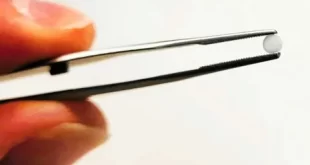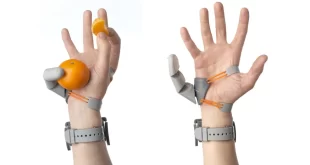The Faculty of Science and Technology at the Norwegian University of Life Sciences (NMBU) has a vacant PhD–position related to semantic simultaneous localization and mapping (SLAM), and autonomous navigation for mobile robots in agriculture. The PhD position is for a period of 3 years, or up to 4 years if teaching and other work duties are agreed.
Desired start date: January 1st 2024
The PhD candidate will focus on the challenging field of autonomous agricultural robots. We want to know if it is possible to achieve concurrent autonomous navigation and semantic mapping capabilities for a mobile robot in agricultural environments. Due to the unstructured and complex planning environment in agriculture, precise mapping and semantic reasoning about present objects, arrangements, and structures is difficult but necessary. The main objective of the position is to integrate autonomous navigation with SLAM for mobile robotic platforms in agriculture. Specifically, combining machine learning-based semantic segmentation with SLAM and motion planning to achieve precise localization, mapping, and semantic segmentation, will be the main tasks in the position. You will get to work with advanced robotic platforms from Saga robotics, Robotnik, and Clearpath Robotics as well as precise sensing devices such as 3D lidar, imu, vision camera, and GNSS.
Integrating the available hardware with state-of-the-art software for autonomous navigation, semantic segmentation and mapping will result in a novel, fully autonomous robotic system capable of performing challenging tasks in agriculture. This position is for a candidate with knowledge and interest in robotics, machine learning, and sensor-fusion.
As a member of NMBU Robotics group you will be working closely with other academics, as well as lab and support staff, to develop robotic systems for realworld field applications primarily within agriculture robots. NMBU Robotics has developed the agriculture robotics platform, “Thorvald”, which has been successfully commercialized by Saga Robotics. You would also be in contact with our external partners such as RobotNorge, SINTEF, NIBIO, and NOFIMA. This combination of partners will create a strong network for achieving your goals!
The person appointed will be affiliated with the University’s organized research training. The academic work is to result in a doctoral thesis that will be defended at the University with a view to obtaining the degree of PhD.
The successful candidate is expected to join the existing research milieu or network and contribute to its development. Read more about the doctoral degree.
Main tasks
The position is focused on integrated navigation and semantic SLAM for a ground mobile robot.
The selected candidate will work on:
- Development and implementation of autonomous navigation model for ground mobile robots in unstructured 3D environments.
- Design and implementation of simultaneous localization and mapping (SLAM) architecture for creating 3D maps based on live or recorded data from the fusion of 3D lidar, vision camera, imu, odometry, gnss, etc.
- Design and implementation of a real-time semantic segmentation module based on sensor-fusion and machine learning.
- Performance evaluation of the results through simulation and experimental studies.
The successful candidate is expected to enter a plan for the progress of the work towards a PhD degree during the first months of the appointment, with a view to completing a doctorate within the PhD scholarship period.
Competence
Required qualifications:
- M.Sc. within a relevant field. Foreign degrees must correspond with the admission criteria for the PhD program. Candidates submitting MSs thesis within 31. December 2023 may be considered
- Experience with robotic systems
- Advanced programming skills
- Experience with machine learning implementation
- Proficiency in both written and oral English in correspondence with the admission criteria for the PhD program.
- Personal suitability and motivation for the position.
The following experiences and skills will be emphasized:
- Proficiency in programming with Python/C++ and ROS
- Experience within motion planning and obstacle avoidance
- Experience with localization, SLAM, and sensor-fusion
- Experience with machine learning algorithms including deep learning
- Previous research and publications within these domains
- Proficiency in a Scandinavian language
Personal qualities:
- Be curios, result-oriented and highly motivated
- Possess strong communication and cooperation skills
- Be a team player
- Have a solid interest in robotics and machine learning
The successful applicant must meet the conditions defined for admission to a PhD programme at NMBU. For more detailed information on the admission criteria please see the PhD Regulations and the relevant PhD programme description.
Remuneration and further information
We offer:
- Salary NOK 532200 per annum. For exceptionally well qualified candidates a higher salary may be considered.
- Government pay scale position code 1017 PhD Research Fellow.
The appointment is to be made in accordance with Regulations on terms of employment for positions such as postdoctoral fellow, Phd candidate, research assistant and specialist candidate and Regulations concerning the degrees of Philosophiae Doctor (PhD) at the Norwegian University of Life Science (NMBU)
The engagement is to be made in accordance with the regulations in force concerning State Employees and Civil Servants, and the acts relating to Control of the Export of Strategic Goods, Services and Technology.
Candidates who by assessment of the application and attachment are seen to conflict with the criteria in the latter law will be prohibited from recruitment to NMBU.
For further information, please contact Dr. Weria Khaksar, Associate Professor, E-mail: weria.khaksar@nmbu.no; phone +47 462 16 735
(do not use this e-mail for application, it is only for questions)
Information for PhD applicants and general Information to applicants
NMBU
Application
To apply online for this vacancy, please click on the ‘Apply for this job’ button above. This will route you to the University’s Web Recruitment System, where you will need to register an account (if you have not already) and log in before completing the online application form.
Application deadline: 15.10.2023
Please note that all documents should be in English or a Scandinavian language.
By applying the candidate confirms that information and documentation submitted via the job application can also be used by NMBU in a possible admission process to the PhD program.
Interviews with the best qualified candidates will be arranged. Applicants invited for an interview are expected to present original diplomas and certificates.
The application must include:
- Motivation letter (maximum 1 page)
- Curriculum Vitae (with a list of education, positions, teaching experience, administrative experience and other qualifying activities, including a complete list of publications)
- Certified copies of academic diplomas and certificates. (i.e. Di-ploma, transcript. Diploma supplement for both bachelor and master). Diplomas, transcripts and diploma supplements that are not in Norwegian or English must be uploaded in the original language. An English translation of these documents must also be attached.
- Applicants from universities outside Norway are kindly requested to send a diploma supplement, or a similar document, which describes in detail the study program and grading system.
- Documentation of proficiency in written and oral English in accordance with NMBU PhD regulation section 5-2 (3).
- Names and contact details for two references
- Additional relevant documentation of professional knowledge (for example, list of scientific works). If it is difficult to judge the applicant’s contribution for publications with multiple authors, a short description of the applicant’s contribution must be included.
About The Faculty of Science and Technology
The Faculty of Science and Technology (REALTEK) develops research-based knowledge and educates civil engineers and lecturers needed to reach the UN’s sustainability goals. We have approximately 150 employees, 70 PhD students and soon 1500 students. The education and research at REALTEK cover a broad spectrum of disciplines.
This includes data science, mechanics and process engineering, robotics, construction and architecture, industrial economics, environmental physics and renewable energy, geomatics, water and environmental engineering, applied mathematics as well as secondary school teacher education in natural sciences and use of natural resources such as in agriculture, forestry and aquaculture. The workplace is in Ås, 30 km from Oslo.
What is it really like to work at the Faculty of Science and Technology (REALTEK) at NMBU?
– Guided tour of the Faculty of Science and Technology on Vimeo
The Norwegian University of Life Sciences (NMBU)
NMBU will contribute to securing the future of life through outstanding research, education, communication and innovation. We have the country’s most satisfied university students, who receive research-based education in a unique student environment. Our graduates gain a high level of competence in interdisciplinary collaboration and are popular in the labor market. NMBU has internationally leading research environments in several subjects. Together with our partners in society and business, we contribute to solving some of the biggest societal challenges of our time.
We focus on innovation, communication and entrepreneurship because we believe these challenges are best solved with joint efforts. We believe that a good working environment is characterized by diversity.If necessary, workplace adaptations will be made for persons with disabilities. More information about NMBU is available at www.nmbu.no/en
Caractéristiques de l'emploi
| Catégorie emploi | Doctorat |
 Etudes Non Stop Etudes Non Stop
Etudes Non Stop Etudes Non Stop



